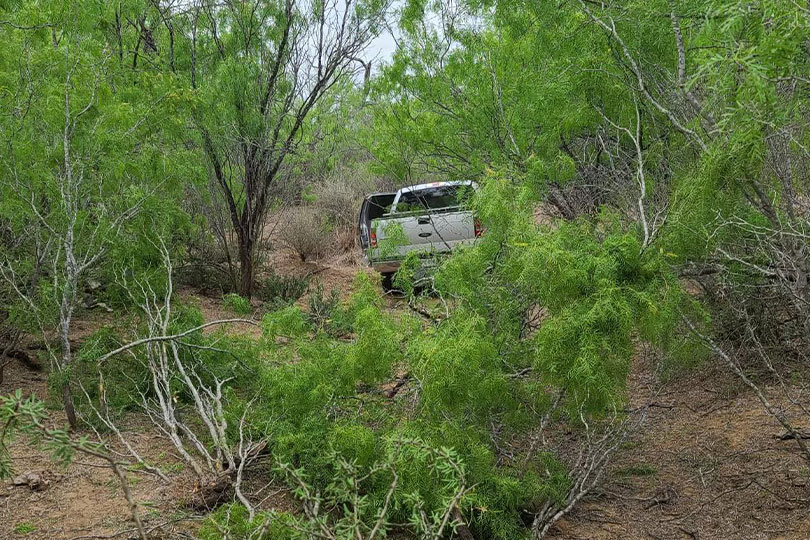By Julie Tomascik
Editor
The crisis along the U.S.-Mexico border threatens the personal safety and livelihood of those who live and work along the border, and the issue is far from solved, U.S. Rep. Tony Gonzales said.
“Everywhere I go throughout my district, it’s the number one issue,” Gonzales told the Texas Farm Bureau Radio Network. “Even with the record gas prices, the fertilizer crisis and everything that’s happening in the world, the border continues to be the number one issue in my district.”
Homes and barns are vandalized. Equipment and vehicles are stolen. Clothes, backpacks, other items and trash are left behind in the “camps” as illegal immigrants move through agricultural land, leaving farmers and ranchers left to clean up the mess. And fear and anxiety are high for families concerned about their safety.
“You’re seeing record numbers of apprehensions, record numbers of drugs and illicit material coming over, record numbers of migrant tests,” Gonzales said. “It is all pure chaos along the border.”
Gonzales, who represents Texas 23rd Congressional District, has hosted numerous meetings at the border, inviting other congressional leaders to see and hear directly from farmers and ranchers about the impacts of the border crisis.
“These once small sleepy towns are now seeing high speed chases several times a week,” he said. “Water lines are getting cut, especially out in West Texas where water is the most precious commodity.”
A long-term solution to the illegal immigration crisis has yet to be reached that will effectively help farmers and ranchers in border towns and counties.
“Ultimately, this is a federal issue,” Gonzales said. “What I really need is the administration to finally realize how bad it is on the border. And I’m not exaggerating. It’s chaos. People’s lives are turned upside down.”
TFB has continued to advocate for a long-term solution by securing the border and stemming the flow of illegal immigration. However, TFB asked for a short-term solution help alleviate some of the needs of farmers and ranchers along the border. The administration recently announced the Border Restoration Initiative to provide some assistance, and TFB continues to work through implementation of the program.
Financial assistance is available to Texas farmers and ranchers along the U.S-Mexico border who are currently impacted by damage to fields and farming infrastructure, including fencing and water structures.
The funds are made available through the Environmental Quality Incentive Program (EQIP) from the U.S. Department of Agriculture’s (USDA) Natural Resource Conservation Service (NRCS). EQIP provides financial and technical assistance to farmers and ranchers to address natural resource concerns and deliver environmental benefits.
Eligible counties in Texas include: Brewster, Brooks, Cameron, Crockett, Culberson, Dimmit, Duval, Edwards, El Paso, Frio, Hidalgo, Hudspeth, Jeff Davis, Jim Hogg, Jim Wells, Kenedy, Kinney, Kleberg, La Salle, Live Oak, Maverick, McMullen, Pecos, Presidio, Reeves, Starr, Sutton, Terrell, Uvalde, Val Verde, Webb, Willacy, Zapata and Zavala.
Applications must be submitted by July 5 to be considered for this year’s funding.
For more information on this assistance program and other border crisis information, visit TFB’s Border Crisis Impacts page at texasfarmbureau.org/border-crisis-impacts.

